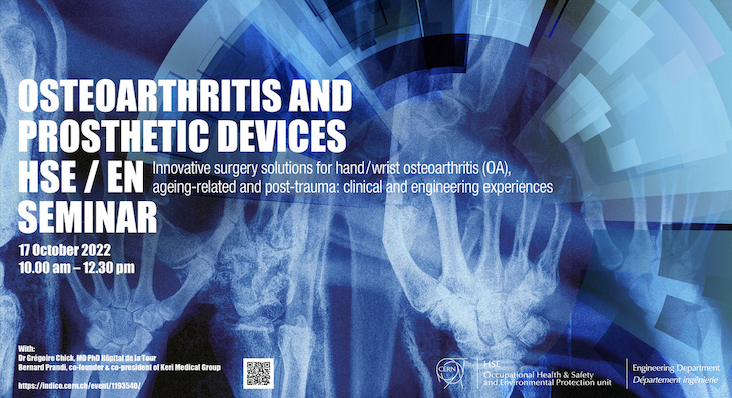Osteoarthritis (OA) is the most common form of arthritis which can affect any joint, typically the hands, knees, hips, lower back and neck. Historically, OA was known as a “wear and tear” condition, generally associated with older individuals but the disease can also affect much younger people depending on personal and professional risk factors. OA is considered a chronic disease and other than joint replacement surgery there is presently no cure. There are, however, treatments that can reduce pain, improve function, and in some instances delay the progression of the disease.
Symptoms vary in severity, and in its more severe forms OA is a painful condition that restricts mobility, interrupts sleep, and interferes with all aspects of life, including in the workplace. In terms of occupational medicine the challenge is to ensure careful monitoring and follow up, in line with the treatment type and prosthesis chosen and the functions and conditions of one’s profession.
In this seminar, Dr Grégoire Chick of the Hôpital de la Tour and Bernard Prandi, co-founder and co-president of Keri Medical Group will present the various clinical and engineering solutions associated with OA. It will further explore the potential of CERN’s Mechanical and Materials Engineering portfolio such as design, simulations and measurements, high-precision fabrication, additive manufacturing, material science and non-destructive testing (including X-ray computed tomography and failure analysis), and possible future collaboration opportunities.
This seminar is co-organised by the Health, Safety and Environmental protection (HSE) Unit, in collaboration with the Engineering (EN) Department.
We look forward to seeing many of you on this occasion!
Full details can be found on the Indico page of the event.

